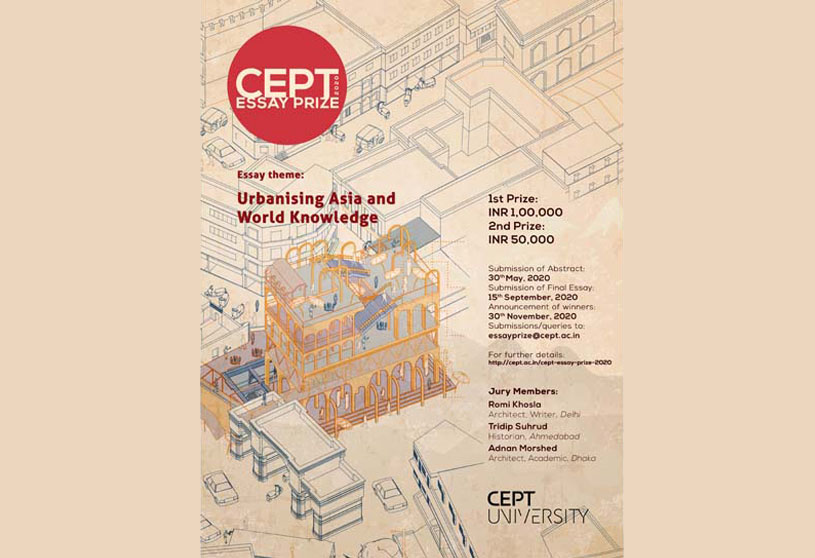Announcement / News
Much of our understanding of cities relies on models of urban history and urban experience defined by the study of West European and North American urban experiences and scholarship – whether it is Spiro Kostoff, or Kevin Lynch, Christopher Alexander or Richard Sennett. The development of world knowledge as it shaped between the European Renaissance and Colonialism is important in the way the pre-modern, the industrial, and the colonial or modern urban development gets described, defined and produces a universal sense of the city. Often in describing the non-European city, the European model or experience still becomes the ‘structural other’. Economic developments in the last four decades, and changing disciplinary structures within Sociology, Urban Geography, Urban History, and the emergence of City Studies has shifted the attention of understanding urban development and urban studies to new models as seen with Anthony King, too much later works of William Grover on Lahore, Arjun Appadurai and Mumbai or Timothy Mitchell on Cairo. Global Cities to Network Cities and Radical Cities and closer home to the thesis of Kinetic Cities many important cultural and political transformations have been studied through cities such as Mumbai or Hong Kong, Shanghai or Dubai, or even the African experience through cities such as Cairo, Johannesburg, and the studies of David Adjaye. From a very crucial study of Hong Kong by Ackbar Abbas as to the work of Brenda Yeohs on Singapore or Janki Nair on Bengaluru as well as thesis on the middle-class in Delhi or Srivastava on Gurgaon and similar curatorial research projects on the cities of Abu Dhabi or Beirut by Catherine David, the cities of Asia have emerged as new laboratories for exploring not only our understanding about cities, but in fact using cities as a lens to explore the changing nature of socio-economic patterns within urban groups and communities, and cultural geographies networked globally. At the same time iconic buildings, conservation of historic architecture, or renewal and new urban development architectural cases are all examples to explore the contemporary world-views for their cultural and political semiotics.
The third cycle of the CEPT Essay Prize 2020 invites you to explore a particular urban condition from anywhere in Asia to understand the nature of networked knowledge production about habitats and cultures, people and world-views. Parallel and interconnected geographies are the important operative ideas as compared to the older imagination in banal binaries such as ‘East versus West’. Urbanity is no longer imagined only through lived physical fabrics but as much as through cinematic, virtual, and purely cultural experiences; the city could be regionally expanded or located within a single neighbourhood wholly as Kaiwan Mehta proposed in Alice n Bhuleshwar or city living could be about ‘distributed-urbanity over a economic-cultural landscapes of migrations’ as he further proposes. The essay should explore specific conditions and examples for models of knowledge production that allow important insights in habitat patterns, cultural transformations, economic patterns, sociological formations and the construction of newer world-views.
The competition result will abounded on November 30, 2020
Jury Members:
Romi Khosla (Architect, Writer, Delhi)
Tridip Suhrud (Historian, Ahmedabad)
Adnan Morshed (Architect, Academic, Dhaka)
For more information visit: https://cept.ac.in/cept-essay-prize-2020
Save